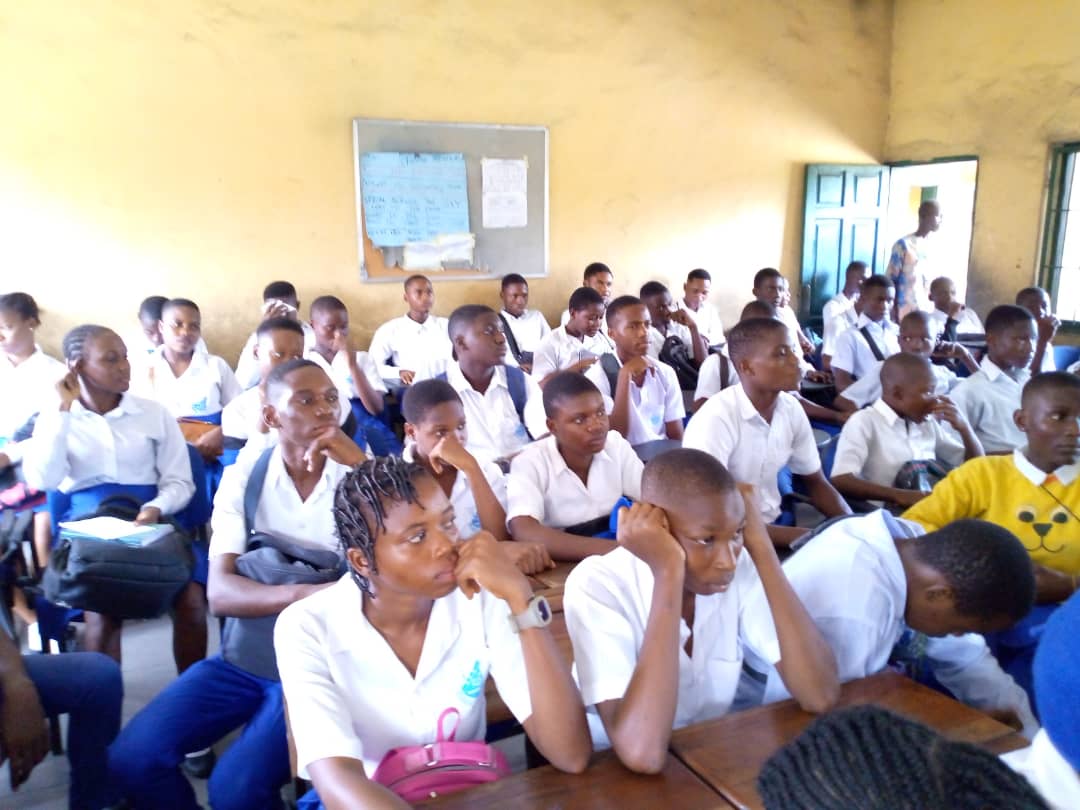Editorial
Making UTME Registration Seamless

The Joint Admissions and Matriculation Board, JAMB’s insistence on linking the 2021 Unified Tertiary Matriculation Examination (UTME) to National Identity Number (NIN) is not going down well with parents and some Nigerians. Many prospective candidates are still bemoaning their inability to register and be part of the ongoing examination.
Sadly, Nigerians’ penchant for procrastination is partly to blame for their predicament. JAMB introduced this policy in 2019 but jettisoned it afterwards following an outcry by Nigerians including members of the National Assembly. Implementation of the policy was put off to 2021. But Nigerians, in their characteristic manner, failed to utilise the grace period. Two years would have been enough for anyone to obtain NIN, the difficulties regardless.
With NIN requirement for the UTME this year, most applicants were compelled to go through difficulties like extortion, long queues in scorching weather, non-adherence to Covid-19 protocols and other unwholesome practices devoid of ethics to enable them register. Others lamented that even with NIN, they could not complete the first stage of application process.
This policy has come with different challenges such as inadequate enrollment centres for the National Identity Card, which some prospective candidates of JAMB have to struggle for weeks or even months, to get to register and generate their NIN for UTME or Direct Entry registration as prescribed by the board. There is also the issue of telecommunications and Digital Service Providers’ poor service delivery and connectivity failure.
JAMB’s Registrar, Prof. Ishaq Oloyede, had clarified that it introduced the use of NIN for registration of the 2021 UTME to checkmate examination malpractice and double registration. He further disclosed that the usage of NIN as a prerequisite for registration was the brainchild of the Minister of Education, Mallam Adamu Adamu.
This regulation has come with a mixed grill. While we, indeed, support any possible and legitimate measure entrenched by JAMB to check examination malpractice, in our well considered opinion, such move is counter-productive at this time, especially when juxtaposed with the challenges directly associated with NIN registration.
Moreover, with the wide reports of hardship Nigerians are encountering to procure NIN on a daily basis, it is rather unnecessary to make it compulsory for candidates, even though it is significant for every Nigerian to have it. Added to this is the fact that not many activities were carried out last year following the lockdown occasioned by the Covid-19 pandemic.
Unfortunately, the arduous task of obtaining the NIN might have compelled JAMB to postpone the exams. The examination body had extended the registration date in a statement by its Head of Information and Public Affairs, Dr. Fabian Benjamin. The spokesman apologised for their inability to complete the process of smooth pin vending and candidates’ access to the registration app.
In all fairness to JAMB, it was observed that some prospective candidates failed to have successful registrations because they infringed the use of double space in sending messages for profile code generation, unmatched name with the one in NIMC, phone number already used by another candidate, insufficient balance to generate profile code that cost N50, among others.
Given those reasons, we think that the examination body cannot be denounced for those self created reversals; but, prospective candidates who were able to reproduce their profile codes, having being charged N4,000 payable in certified bank draft, should be refunded immediately or be allowed to take the examination in whatever way that can be done. This has to include all persons impacted by poor network or a delayed response from telecommunications service providers.
Most worrisome, however, is the sheer fact that JAMB still went ahead and provided profile codes to the candidates it felt infringed on its rules and also directed them to pay the mandatory N4,000 at the bank before proceeding to its various offices across the nation with bank drafts, with a view to registering them for the examination. This is fraudulent. We say so because despite being armed with their profile codes and parting with the required fee, they could not participate in the examination at the end of the day.
Again, since no UTME was conducted in 2020 following the Covid-19 pandemic, JAMB ought to have considered the fact that admission into higher institutions would double. The logical thing to do in the circumstances was for the board to make the NIN requirement optional and prioritise candidates’ enrolment by utilising a longer period for registration. This way, the challenge would have been sorted with ample time.
JAMB would need to do more in subsequent enrollment exercises to make the process easier as these challenges could dampen morale and affect overall performance in the examination. Specifically, we urge the Federal Ministry of Education to suspend the policy till when there is a seamless and well-organised process for obtaining the NIN. Students should be able to obtain their NIN in their accredited schools.
Policies that give priority to students at NIN registration centres and the provision of alternative avenues to generate the all-important profile code are some of the things the examination body can immediately do to ease the process for candidates going forward.
Editorial
AFCON ’25: Bravo, Super Eagles, But…

Editorial
Fubara: Celebrating A Leader At 51

Editorial
Beyond Accessing Bonny By Road

-

 Politics4 days ago
Politics4 days agoPFN Rejects Call For INEC Chairman’s Removal Over Genocide Comments
-

 Rivers4 days ago
Rivers4 days agoFasthire, PHCCIMA, CIPM Host CareerFest 2026 In PH
-

 Sports4 days ago
Sports4 days agoEnekwechi wins Orlen Cup in season opener
-

 Politics4 days ago
Politics4 days agoHoodlums Disrupt LP-ADC Defection Event In Lagos
-

 Sports4 days ago
Sports4 days agoFalconets, Senegalese Lionesses arrive Ibadan for qualifier
-

 Sports4 days ago
Sports4 days agoSimba open Nwabali talks
-

 Politics4 days ago
Politics4 days agoRemoval From INEC’s Portal, Abure-Led LP Faction Mulls Legal Action
-

 Niger Delta4 days ago
Niger Delta4 days agoTinubu, Jonathan, Diri Pay Last Respect To Ewhrudjakpo

